
![]()

![]()
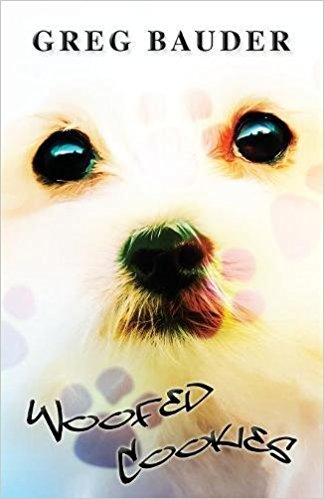
![]()
Aimed at teens, Woofed Cookies reads more like it’s geared towards small kids. The writing style is super-simplistic.
True to its name, Woofed Cookies is about a dog named Cookie that saves its owner by vomiting everywhere. Alright. That’s…unique. Young Peter manages to get himself into sticky situations. Of course, little Cookie comes to his rescue each time. The relationship between dog and owner was cute.
Structure was off. Paragraphs needed better breaks between subjects. Instead, they were all lumped together in one long-winded piece of exposition. Some editing should take care of the grammar and punctuation issues. Characterization was alright. They were all straight-forward and easy to identify without much problem.
The story itself progresses along in a believable, logical manner. All the way until the end. I have so many issues with the last “problem” that Peter encounters. To me it feels like a bad plot hole in a horror movie that makes the reader roll with it. Another route would have definitely been preferable.
This could be a cute book for little kids. It demonstrates that something considered a hindrance (vomiting) can still be useful. Not everyone’s disability keeps them down. So, the positive message was there, the execution needs some work.
Buy it here!

![]()
One of the brighter books of poetry out there. Structured much in the way of Shel Silverstein, most of the poems have powerful messages. Like any poem, each Twilight Scrawl contains heavy metaphors. They were of varying levels, some easier to picture than others. The author does well to mix up the imagery and the subjects without going overboard. Don’t think I’ve ever seen anyone write an Ode to William Blake before, so many points in creativity. Instead of focusing on emotions only, most of the poems tell a complete story. Some are only a few lines, some are a few pages, but they’re not monotonous.
Twilight Scrawls is also much longer than most poetry books are. Especially those written by one author. Poems have different rhyme schemes to keep the reader interested. Not only the traditional “ABAB” that schools teach, either. I’m no poetry expert, but there are some Poe and Shakespeare vibes in the arrangements.
Errors were nonexistent. Formatting itself was tight and solid.
All in all, a nice, relaxing book of a poems. They varied in subject matter, structure, and imagery. Feels very traditional, but that’s not a bad thing in this area. Definitely worth the time to read.
There is currently no listing on Amazon for this author. However, you can check out her website and other works right here!
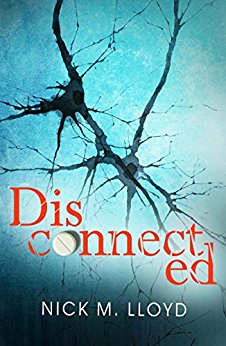
![]()
Disconnected reads like a Michael Crichton novel. In fact, it opens in a very similar manner to some of his books. A scientific expedition works their way through a jungle to investigate a troop of “rabid” bonobos. As readers, we can only assume that a curse or some violent disease follows.
Not exactly.
Straying from the beaten path, Disconnected approaches scientific drama in more Eastern way. A sci-fi Eastern way. A man named Asha can see into people, see the way their connections line up, and manipulate them as he must. Not only him, either. There are many people who can see these kinds of connections. Through such manipulation, Asha seeks to further his own agenda. Centering on the cure for dementia, Disconnected brings political drama into the folds.
The story gets a little convoluted in areas. There are a few characters to keep track of, each one with intersecting story lines. Much like the Da Vinci Code. While the writing is very technical and dry, it still maintains a Dan Brown atmosphere. Since it is so technical, description of things is something the book is lacking. I still don’t have a good grasp on what anyone looks like beyond “he’s Asian.” Describing what’s going on in the scenes gets a little long-winded. It’s great that there’s so much exposition, but sometimes it went overboard. There were a few super-repetitive chapters as the author focused on Asha. Which was a little more often than needed.
Characters were dynamic. They each had their own narrative that contributing to the overarching plot. Each had their own agenda that was a wrench in the plans of someone else. Manipulation runs rampant, and not only the telepathic kind. Those mundane humans have their own tricks as well.
It not only passes the Bechdel test, but also puts women in positions of power. They have drive and motivation beyond marriage and kids. They’re alright in how they’re rounded out—like the rest of the characters. Some were more fleshed out than others. At least, enough to not consider them flat. We receive more information on the scene than everyone in the scene, and that was sometimes frustrating. It certainly told more than it showed.
Disconnected it contained interesting elements not usually associated with this kind of story. The writing was solid, albeit a bit long and dry. Characters held my attention. It was worth reading once.
Buy it here!
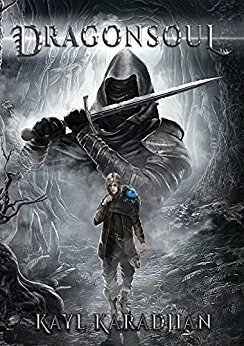
![]()
This was so. Cute.
Gloom and doom have got people feeling a little…gray. In a literal sense. Denyth is a young boy whose life consists of nothing but gray. Kid’s never seen a color before, though he has heard of the legends. Of a place called Evenar. And dragons. But that’s only a legend, right? In the first few pages, the author immediately sets the tone of the novel.
We’re also introduced to D-Zero, the king’s personal go-to guy. He’s the kind whose deprived personality fits in with the rest of the world. D-Zero also goes to show how anti-heroes can distinguish themselves from villains. The line between good and bad is as gray as the rest of the world.
The story narrates back and forth between a few characters. All are necessary to move the story along. Point of view switches were smooth. Flashbacks were not. They happened without much transition, though the author tried to be subtle. I had to re-read often to see why things changed.
Each subplot serves to add another layer to depth of the world. It’s obvious great care and thought went into the creation of the setting. The description and style choice between the two lands change to alter the mood of the reader.
A few errors slipped through editing. Obvious, but nothing deal-breaking. Some of the narration sounded a little too stiff and formal. Out of place, even.
I liked the way the dialogue flowed and how smooth character interactions were. Each character was different. Each on had their own voice, something made easy to discern. All were well-rounded.
Character development was fabulous. A story line unique to each character was present. They all faced different hurdles at different times and the differences showed. The best part? It was all accomplished without a silly little romantic subplot.
Whether I’m reading too far into thing or not, this novel felt rife with metaphors. Reminded me quite a bit of The Chronicles of Narnia, by C. S. Lewis. The Gloom feels like a metaphor for the monotony of everyday life, and feels like one for depression. It creeps into the hearts of even the brightest soul and changes them. The author does an excellent job of conveying that feeling.
Intentional or not, the metaphors make the story feel more relatable. And did I mention how cute the story was? The moment we’re introduced to Littlehorn, I fell in love. The bond and interactions shared between Littlehorn and Denyth were so adorable.
I enjoyed the authors’ writing style and imagination. Fantasy lovers are sure to get enjoyment from this novel.
Buy it here!

![]()
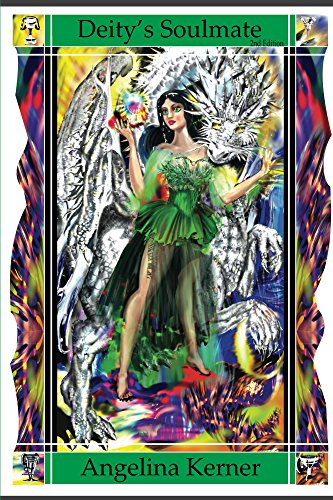
![]()
Deity’s Soulmate is an interesting amalgamation of Greek mythos and modern storytelling. Modern in that it takes place with current amenities, so to speak. While the deity’s can go anywhere and to any time, the story itself feels like it takes place in the year 2017. Gardenia, Apollo and Athena’s daughter, starts her journey creating her very first universe. Like all her relatives before her. She is in fierce competition with Harvest, daughter of Hera and Zeus. Both women are always trying to one up each other. As a result, it pushes Gardenia to make the most important decision of her life.
I can say without a doubt that I don’t like Gardenia’s character. Based on her familial background, I know the readers are supposed to sympathize with her. I can’t. The more the story progresses, the more we see that she’s the same as everyone else. Demanding, rude, self-centered, and petty. Read: everything a Greek deity’s described as. So, while her personality is canon, I don’t find her likable. Or relatable. Negative traits in a character are good things, usually. Not very many people seem to grasp that fact that they’re needed for a full personality. Unfortunately, Gardenia’s outweighs her good traits. And it feels so over the top it’s like she’s trying to show off. Trying too hard.
There isn’t much in the way of character development. Gardenia does everything with relative ease. Magic is what she relies on. It does everything for her. No limits in sight. This gives her an unnatural advantage during her quest. Cheapens her victories, if you will. There’s a vague idea that somewhere, somehow, she’s struggling to fulfill her task. I have yet to see it.
The writing style was very fast-paced. It suited the story…for the most part. There was a lot more telling than showing. Telling can be useful. This case was very overdone.
The pacing of the story itself felt off. Every so often Gardenia would do something, only to have years pass. Except it doesn’t feel like years have passed. It feels like Gardenia is vomiting her story out. That everything is happening one right after another. The fact that her character stays the same from beginning to end doesn’t help. Generally, with the passage of time, people change. Gardenia didn’t.
Deity’s Soulmate has potential. It’s hard to find Greek mythology that hasn’t been overdone, and this novel can do it. It would take some work. Still, it’s a step in the right direction.
Buy it here!
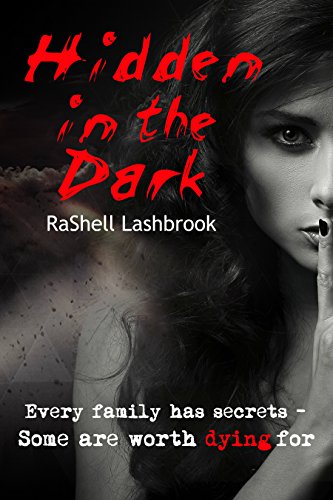
![]()
If you’re ready for an intense, emotional rollercoaster ride, look no further.
Hidden in the Dark tells the tale of three sisters that discover their family secrets.
The tone is immediately set when we open with a man beating his wife. It wasn’t much before she decided to up and leave. Conflict’s established right off the bat. Accepting the author’s hook is a no-brainer: it promises lots of drama.
And it delivers. Through the eyes of each character this tale unfolds. Raine, Randi, Lilly, and Genevieve all tell their sides of the story. Each one weaves another layer to the fabric of this story. It works itself like a puzzle, coming together piece by piece. Three sisters start to remember bits of the awful things their father did. And for some, they learn some new things about themselves.
There is conflict everywhere. But each battle is important to either the characters or the narrative. It pushes the characters along in their development. And there was so much character development. So much drama, but so necessary. It leaves the reader hanging on every word, wanting more and more. All the information is spoon-fed to the reader in such slow, small increments. Such wonderful execution is an art form in and of itself.
While story pacing is excellent, the way the chapters break is frustrating. Chapters would end, only to pick up where they left off in the very next one. It never failed to pull me out of the story because I’m expecting something different.
There was some graphic sex in the novel—most of which was well-written. The author did a better job than most. And it served a purpose to the narrative.
I love the way the author takes the characters’ lives in different directions. Hidden in the Dark touches on varying coping methods. Some healthy, some not. Some expected, some not. By the end, the readers experience an entire spectrum of aftermaths—both good and bad. I loved the fact that not everyone had a happy ending. Leaving such a raw, emotional feeling must have been difficult for the author. But it complimented the rest of the novel so well. Everything fit. Everything felt right. Loose ends were well taken care of.
Hidden in the Dark touches on such sensitive subjects, but does so with tact and grace. It’s a wild ride from both start to finish. This author is one to keep an eye out for.
Buy it here!

![]()
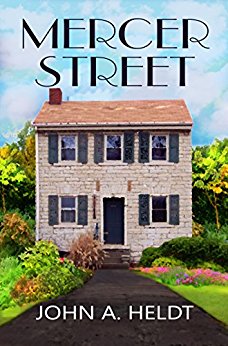
![]()
Mercer Street is a heartwarming tale of three women that get to travel back in time.
Susan, Elizabeth, and Amanda. Mother, grandmother, and daughter. After tragedy strikes the family, the women get the opportunity to travel to the late 1930’s. Like any good, sensible people would do, they look the chance. A chance to visit a time when Germany was about to go to war? Why not?
Armed with enough supplies to last their visit, they set out on an emotional journey.
Continuity is important when it comes to time travel. Many suffer with convoluted storylines, plot holes, and more questions asked than answered. Mercer Street did the opposite. Grueling attention to detail was very much a cornerstone of the tale.
I loved the family dynamic. They usually don’t fight. They get along. Sort their problems in a civil manner. They respect each other, even when things get difficult. And they’re always there for each other. No matter what life throws at them: Nazi spies, Albert Einstein, or Eleanor Roosevelt.
For the most part, the writing is solid. The style and the tone suit the story.
My major problem with the novel was that everyone sounded too polite. Too formal. Long sections of dialogue got dry quick. Dialogue told most of the story, and as such things got awkward and clunky.
External conflict was also on the low side. Situations felt a little too easy for the characters. They didn’t usually fumble. They were too knowledgeable. Near-perfect memories. Visitors to another era and they blended in no problem. If something did happen, the next paragraph solved the problem. Given the nature of the novel, though, internal conflict seemed appropriate. It helped convey the depth of emotion the novel was going for.
Along the way, each woman got a very satisfying storyline. All were different, but tied together. Each one served to further their character in different ways. And they were all important, not thrown in because the author could.
The ending was a touching one as well. Most of it was predictable. Not a bad thing, because it was satisfying and appropriate. The author still managed to slip in a bit of a surprise at the very end, one I didn’t see coming. I’m always happy when that happens. With the way the loose ends tied up, most things about this novel were solid. Worth the read.
Buy it here!